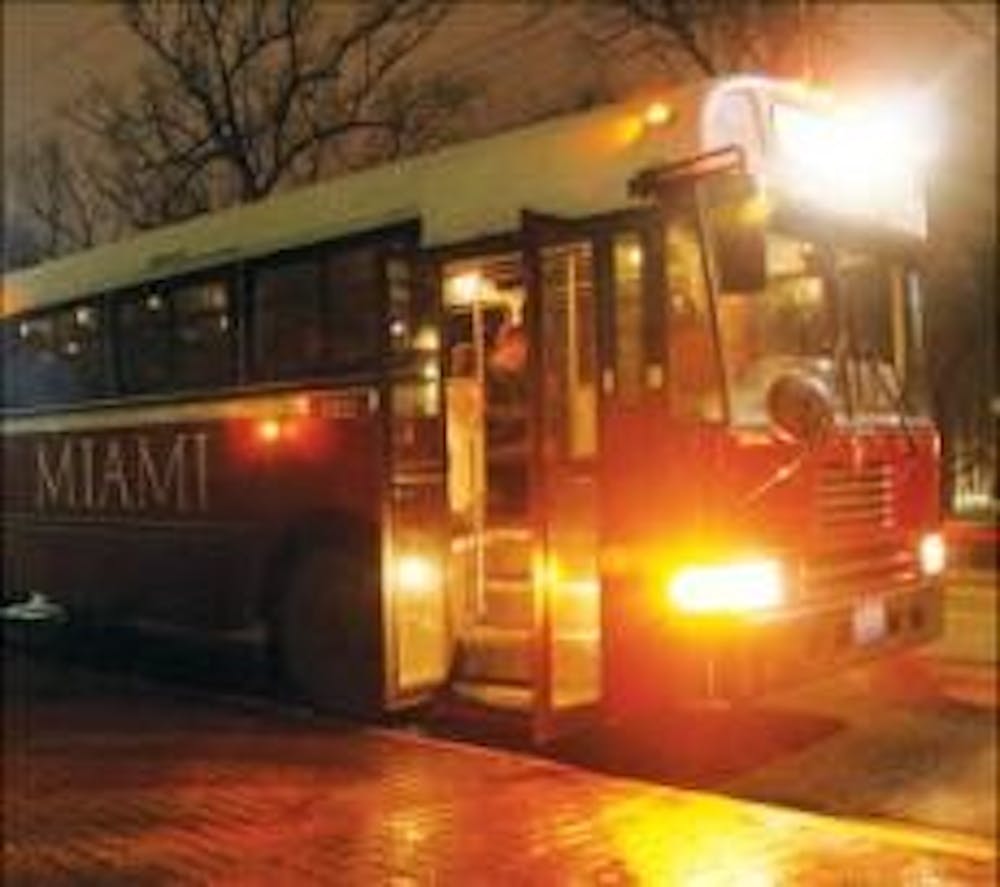
Miami University metro has a policy, allowing bus drivers to deny students service to the bus if they seem highly intoxicated and may interfere with the safe operations of the bus.
At 1:30 a.m. Feb. 1, Miami first-year Lauren Hensley, 19, reportedly attempted to ride the Miami Metro bus back to her residence hall, but was refused service by the bus driver who said she was too intoxicated.
The Oxford Police Department (OPD) later cited the student for underage intoxication due to a call made by the driver.
According to police, Hensley was refused service on the blue bus at Church and Main streets because she was arguing with the bus driver, swaying while walking, limping and appeared disheveled. The bus driver called OPD and officers found her stumbling down the street in the direction of her residence hall.
Officers reportedly stopped Hensley, who admitted to arguing with the bus driver. She said she wanted a ride home but told police that the driver would not let her on because she was too intoxicated.
The officer reportedly gave Hensley a ride home and cited her for underage intoxication. The officer reportedly offered her medical treatment as she was hiccupping in the back seat of the car, but Hensley refused. Hensley reportedly said that she just wanted to go home.
Hensley's said refusing service to intoxicated students defeats the metro's role of getting students home safely.
"I think it's kind of unfair," Hensley said.
Perry Gordon, director of Parking and Transportation Services, said there is a reason drivers can refuse service.
"Bus drivers are responsible for the safety of their passengers as well as the operation of their vehicle," Gordon said. "If (students) interfere with safe operation of the bus, we have asked bus drivers to contact police."
Gordon said calling the police is a last resort and usually occurs after students have been warned.
Enjoy what you're reading?
Signup for our newsletter
Students sometimes attempt to drag heavily intoxicated friends onto buses, Gordon said, which is dangerous for the students involved and others on the bus. However, Gordon said incidents such as Hensley's do not occur often.
"We rarely see incidents like that mostly because I think students are taking care of each other," Gordon said.
Gordon also said police can be called on students who are not intoxicated if they are disturbing other passengers or interfering with the safe operation of the vehicle.
While Gordon recognized the importance of getting students home safely, he said students must act appropriately on the buses.
"We want people to ride the bus, but if they're going to get on the bus they need to behave," Gordon said.
He said incidents similar to Hensley's do not happen often.




